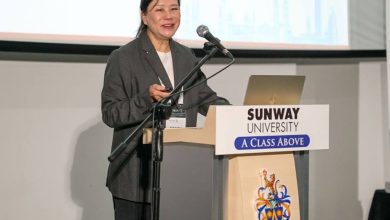World University “Rankometer” Launched to Provide Single Benchmark of University Quality

AppliedHE has launched its brand new World University “Rankometer” which combines the world’s most influential university rankings into a single and transparent benchmark, simplifying university comparison for students, parents, employers and other stakeholders.
SINGAPORE, Wednesday 27 January 2021 – Singapore-based EdTech start-up AppliedHE has launched the AppliedHE Rankometer: World University Rankings (https://AppliedHE.com/rankometer), which combines five of the world’s most influential world university rankings into a single measure of university quality, providing the “final word” on the global standing of a university.
“There has been a proliferation of university rankings in recent years. Students, parents and employers simply don’t know where to look for a reliable comparison of universities. With the Rankometer we have solved that problem by providing a transparent and reliable measure of university quality” said Mandy Mok, CEO & Founder of AppliedHE. “Instead of comparing many different rankings, which all have their biases and a different focus, why not look at the aggregate figures in our Rankometer?”
The AppliedHE Rankometer combines the the World University Rankings published by QS (UK), Times Higher Education (UK), Shanghai Rankings (China), Leiden University’s CWTS (The Netherlands) and CSIC’s Cybermetrics Lab (Spain), which publishes the Webometrics ranking. These rankings are selected because they are cited most frequently in the international media, and they are therefore the most influential globally (see also https://AppliedHE.com/rankometer/methodology).
“All five university rankings measure something different, and by combining them in the AppliedHE Rankometer the universities that perform strongly across the board in all five ranking systems are placed at the top.” explained Dr. Kevin Downing, Chair of the AppliedHE Ranking Advisory Board and Secretary to Council & Court and Director, Institutional Research Office at the City University of Hong Kong.
AppliedHE Ranking Advisory Board member Prof Kingsley Bolton, Professor of English Linguistics (Emeritus), University of Stockholm noted that “The Rankometer has the potential to shed light on why ranking systems often differ markedly when evaluating various universities worldwide”.
On a more critical note, AppliedHE Ranking Advisory Board member Dr Aigerim Shilibekova, Director of Centre for Teaching Excellence, University Canada West opined “Rankometer is definitely an interesting development, but for more employability-focused institutions like ours the criteria of most rankings simply don’t fit. Thankfully AppliedHE is planning to develop rankings with a stronger employability focus as well.”
Mrs Geok Hwa Tan, a parent of a pre-university student from Singapore who reviewed the Rankometer results says: “Rankometer is really important for students and parents, because there are just too many rankings! Which one can you trust? For me Rankometer is a great idea and it’s the only ranking I would trust.”
According to Google News, the most frequently cited ranking is the QS World University Ranking, this is followed by the Shanghai Ranking, Times Higher Education Ranking, Leiden Ranking and Webometrics.
The rankings are computed using a very simple and transparent method: the ranks of a university in all five rankings are added up together. Then, just like in a game of golf, the university with the lowest score is ranked first, etc. Universities which are not ranked or ranked 1001st or lower, automatically score 1001 points in that ranking.
Some insights from the Rankometer:
Top five universities worldwide:
| Ranko. Rank | Institution | Location | QS Rank | Shanghai Rank | THE Rank | Leiden Rank | Webo. Rank |
| 1 | Stanford University | United States | 2 | 2 | 2 | 4 | 2 |
| 2 | Harvard University | United States | 3 | 1 | 3 | 5 | 1 |
| 3 | Massachusetts Institute of Tech. | United States | 1 | 4 | 5 | 2 | 3 |
| 4 | University of Oxford | United Kingdom | 5 | 9 | 1 | 11 | 7 |
| 5 | University of Cambridge | United Kingdom | 7 | 3 | 6 | 14 | 12 |
Top five universities in Asia:
| Ranko. Rank | Institution | Location | QS Rank | Shanghai Rank | THE Rank | Leiden Rank | Webo. Rank |
| 26 | Tsinghua University | China (Mainland) | 15 | 29 | 20 | 101 | 35 |
| 31 | National University of Singapore | Singapore | 11 | 80 | 25 | 65 | 51 |
| 37 | Nanyang Technological University | Singapore | 13 | 91 | 47 | 43 | 92 |
| 55 | Chinese University of Hong Kong | Hong Kong SAR | 43 | 101 | 56 | 101 | 109 |
| 63 | University of Hong Kong | Hong Kong SAR | 22 | 151 | 39 | 186 | 42 |
Universities with the greatest variation in rank:
There are large differences in the rankings of individual institutions. This shows some of the concerns when using a single ranking.
| Ranko. Rank | Institution | Location | QS Rank | Shanghai Rank | THE Rank | Leiden Rank | Webo. Rank |
| 438 | University of Buenos Aires | Argentina | 66 | 201 | 1001 | 937 | 378 |
| 260 | Moscow State University | Russia | 74 | 93 | 174 | 1001 | 211 |
| 293 | Humboldt University of Berlin | Germany | 117 | 1001 | 80 | 304 | 226 |
| 408 | Yeshiva University | United States | 341 | 201 | 1001 | 96 | 785 |
| 378 | National Autonomous University of Mexico | Mexico | 100 | 201 | 801 | 1001 | 144 |
Full Rankometer Results are now available here.
Watch the launch recording here




